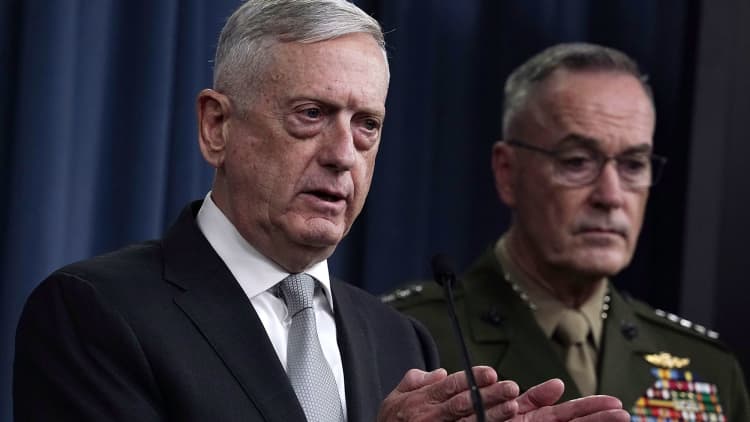German senior minister Michael Roth warned "anti-Russian reflexes" could harm EU nations as much as Russia's "nationalist-tinged policies."
Speaking to Germany's Die Welt newspaper on Monday, Europe Minister Michael Roth called for the EU to come together to de-escalate tensions with Russia.
"Sanctions aren't a goal in themselves," he said. "They should encourage people back to the negotiating table to work on reasonable solutions."
The Social Democrat — who is part of Chancellor Angela Merkel's ruling coalition — said that a "new, stable world order is not in sight" and that only a Europe speaking with "one voice" could deal with the EU's growing concerns on Russia and Syria.
Meanwhile, Germany's Foreign Minister Heiko Maas urged countries with an influence in the Syrian conflict to be part of a solution.
"There will be a solution involving everyone who has influence on the region," he told reporters in Brussels, according to Reuters.
Maas said Syrian President Bashar Assad could not be part of a solution in Syria.
"Nobody can imagine someone who uses chemical weapons against his own people to be part of this solution."
Both Assad and Russia deny reports that 500 people were affected by a chemical attack in the Syrian town of Douma earlier this month. The World Health Organization reports that 70 people had been killed in the attack.
On Saturday, Merkel ruled out military involvement alongside the U.S., the U.K. and France, but did call the joint rocket strike an "appropriate" response.
"The military mission was necessary and appropriate to preserve the effectiveness of the international ban on the use of chemical weapons and to warn the Syrian regime of further violations," said Merkel.
Germany's restrained policy on Syria has come under heavy criticism from both current and former politicians.

Former Defense Minister Karl-Theodor zu Guttenberg said Merkel's administration only offered "fine and pretty words" and wished to see more "logistical support" for Germany's Western allies involved in Syria.
"When people are slaughtered, you have to intervene once," he told German newspaper Bild.
Green Party politician Jürgen Tritten disagrees with Angela Merkel's position on Syria for a different reason entirely.
He said applause for Germany's Federal Government is "unbearable."
Tritten says the only solution to ending the war in Syria is to bring Washington and Moscow around the same table.

